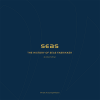Mathematical Thought and Its Objects
Charles Parsons examines the notion of object, with the aim to navigate between nominalism, denying that distinctively mathematical objects exist, and forms of Platonism that postulate a transcendent realm of such objects. He introduces the central mathematical notion of structure and defends a version of the structuralist view of mathematical objects, according to which their existence is relative to a structure and they have no more of a ‘nature’ than that confers on them. Parsons also analyzes the concept of intuition and presents a conception of it distantly inspired by that of Kant, which describes a basic kind of access to abstract objects and an element of a first conception of the infinite.
• Treatment of the notion of object in mathematics motivated by a general idea about objects • Analysis of the concept of intuition and development of a particular conception of it • Attempt to balance the intuitive, conceptual and rational in mathematical thought
ContentsPreface; 1. Objects and logic; 2. Structuralism and nominalism; 3. Modality and structuralism; 4. A problem about sets; 5. Intuition; 6. Numbers as objects; 7. Intuitive arithmetic and its limits; 8. Mathematical induction; 9. Reason.
- Forlag: Cambridge University Press
- Kategori: Filosofi
- Lagerstatus: Ikke på lagerVarsle meg når denne kommer på lager
- Antall sider: 400
- ISBN: 9780521452793
- Innbinding: Innbundet











